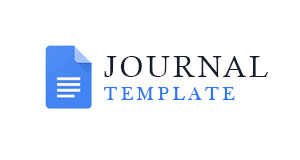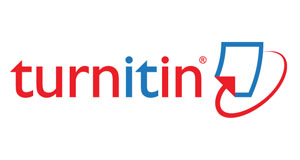The Effect Of Information Overload On Decision Postponement Mediated By Consumer Confusion In Generation Z In Jepara
Abstract
This study aims to examine the influence of information overload on decision postponement, mediated by consumer confusion. The research adopts a quantitative approach, targeting the Generation Z population in Jepara. Data collection was conducted using completed questionnaires distributed to respondents selected through random sampling techniques and the Slovin formula. A total of 310 samples were analyzed using the PLS-SEM method with Smart PLS version 4.0. The research findings indicate that excess information does not directly influence decision postponement. However, information overload positively and significantly affects consumer confusion, and consumer confusion, in turn, positively and significantly influences decision postponement. With the presence of consumer confusion as a mediating variable, the relationship between information overload and decision postponement demonstrates a positive and significant correlation. The variable of consumer confusion in this study successfully mediates the connection between information overload and decision postponement, thereby producing positive and significant effects.
Keywords
Full Text:
PDFReferences
Amirhoseini, S. E., Et Al. (2018). "The Effects Of Consumer Confusion On Decision Postponement And Brand Loyalty Of Sport Clothing." 6(3): 87-100.
Anninou, I. And G. R. Foxall (2019). "The Reinforcing And Aversive Consequences Of Customer Experience. The Role Of Consumer Confusion." Journal Of Retailing And Consumer Services 51: 139-151.
Aryasa, F. M. And M. R. J. K. J. I. M. Roosdhani (2024). "Pengaruh Price Discount, Content Marketing, Dan Live Streaming Terhadap Keputusan Pembelian Pada Tiktok@ Ainafashion. Id." 5(2): 69-80.
Belabbes, M. A., Et Al. (2022). "Information Overload: A Concept Analysis." (Ahead-Of-Print).
Dewi, A. P., Et Al. (2022). "Pengaruh Information Overload Terhadap Perilaku Penghentian Penggunaan Pada Social Networking Service (Sns)." 6(2): 518-526.
Fu, S., Et Al. (2020). "Social Media Overload, Exhaustion, And Use Discontinuance: Examining The Effects Of Information Overload, System Feature Overload, And Social Overload." Information Processing & Management 57(6): 102307.
Gao, W., Et Al. (2018). "The Dark Side Of Ubiquitous Connectivity In Smartphone-Based Sns: An Integrated Model From Information Perspective." Computers In Human Behavior 84: 185-193.
Heiss, R., Et Al. (2023). "Social Media Information Literacy: Conceptualization And Associations With Information Overload, News Avoidance And Conspiracy Mentality." Computers In Human Behavior 148: 107908.
Hwang, M.-Y., Et Al. (2020). "The Relationship Between The Online Social Anxiety, Perceived Information Overload And Fatigue, And Job Engagement Of Civil Servant Line Users." Government Information Quarterly 37(1): 101423.
Ji, Q., Et Al. (2014). "The Role Of News Media Use And Demographic Characteristics In The Possibility Of Information Overload Prediction." 8: 16.
Lu, A. C. C., Et Al. (2016). "Antecedents And Outcomes Of Consumers’ Confusion In The Online Tourism Domain." Annals Of Tourism Research 57: 76-93.
Matzler, K., Et Al. (2007). "Spoiled For Choice: Consumer Confusion In Internet-Based Mass Customization." 3(3).
Misra, S., Et Al. (2020). "Information Overload, Stress, And Emergency Managerial Thinking." International Journal Of Disaster Risk Reduction 51: 101762.
Müller, R., Et Al. (2023). "How Can We Avoid Information Overload And Techno-Frustration As A Virtual Team? The Effect Of Shared Mental Models Of Information And Communication Technology On Information Overload And Techno-Frustration." Computers In Human Behavior 138: 107438.
Oktaviany, T. A. And C. K. J. E. O. M. Dewi (2020). "Pengaruh Consumer Confusion Terhadap Non Purchasing Behaviour Dengan Trust Sebagai Moderator." 7(2).
Roosdhani, M. R., Et Al. (2024). "From Likes To Rides: How Social Media Marketing Activities Transforms Into Purchase Decision In Bus Services." 7(2): 913-929.
Sharma, A., Et Al. (2023). "Consumer Confusion And Decision Postponement In The Online Tourism Domain: The Moderating Role Of Self-Efficacy." Journal Of Hospitality And Tourism Insights 6(2): 1092-1117.
Sharma, A., Et Al. (2023). "Consumer Confusion And Its Consequences In The E-Hospitality Marketplace: The Mediating Role Of Negative Emotions." Journal Of Service Theory And Practice 33(4): 488-510.
Singh, P., Et Al. (2018). "An Empirical Study Of Consumer Confusion On Decision Postponement." 9: 130-142.
Soucek, R. And K. Moser (2010). "Coping With Information Overload In Email Communication: Evaluation Of A Training Intervention." Computers In Human Behavior 26(6): 1458-1466.
Trisa, A. And M. R. J. Y. J. O. M. Roosdhani (2024). "Analisis Hubungan Antara Strategi Pemasaran Media Sosial, Citra Merek, Dan Minat Pembelian Di Industri Fashion Sweet Mango Jepara." 7(2): 20-33.
Tristandinata, M. J. J. O. S. And E. Research (2024). "Consumer Confusion And Its Impact On Decision Making Among Female Consumers In Indonesia’s Online Cosmetics And Personal Care Industry." 6(1): 2273-2291.
Walsh, G., Et Al. (2007). "Consumer Confusion Proneness: Scale Development, Validation, And Application." 23(7-8): 697-721.
Xue, P., Et Al. (2020). "Online Hotel Booking Decisions Based On Price Complexity, Alternative Attractiveness, And Confusion." Journal Of Hospitality And Tourism Management 45: 162-171.
DOI: https://doi.org/10.24952/tijaroh.v11i1.14947
Refbacks
- There are currently no refbacks.
Copyright (c) 2025 At-tijaroh: Jurnal Ilmu Manajemen dan Bisnis Islam

This work is licensed under a Creative Commons Attribution-ShareAlike 4.0 International License.








